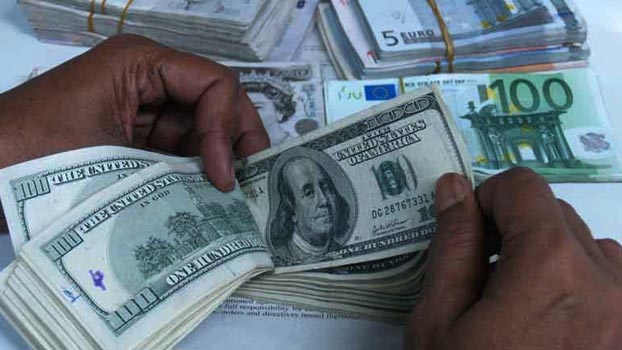Remittance inflow slightly high ahead of Eid

Remittance inflow has slightly increased ahead of the imminent Eid-ul-Fitr as expatriate workers are sending money to their families for Eid celebration.
Market analysts said expatriate workers have continued to send money to their homes to ensure the smooth Eid celebration of their family members despite the fact that they have been suffering from various crises including financial constraints due to the continued worldwide lockdown for coronavirus pandemic.
Currently many expatriate workers don’t have money in their hands as they could not work for a long period of time due to the lockdown, but they borrowed money for sending them to their families ahead of the Eid, they added.
Bangladeshi expatriates have sent $1.09 billion in the first nineteen days of the current month, which is higher than the last two months’ remittance inflow, according to Bangladesh Bank data.
The country’s remittance inflow witnessed a rapid fall to hit record 31-month low in last month as expatriates have faced many challenges abroad as for the ongoing coronavirus pandemic.
The remittance stood at $1.08 billion in last month, which was the lowest inflow in 31 months since September 2017. The inflow was $856 million in September 2017.
In March 2020, this figure was $1.28 billion.
A central bank official said, “The remittance is known as the best indicator of the economy of Bangladesh, but it has decreased due to the virus pandemic for the last several months.”
Currently many countries have relaxed lockdown which has helped to raise remittance inflow ahead of the Eid in the country, he added.“Expatriates in the Middle East are still sending money to support their families at home”, he said.
He expects this flow will continue in upcoming months as many countries of the world are going back to normal life by relaxing the lockdown.
Eminent economist Zahid Hussain told Bangladesh Post, “Bangladesh expatriates have faced many challenges abroad as coronavirus has broken down all activities of the world.”
He further said most of the unskilled workers of Bangladesh who mostly work in the Middle-East are in fear of losing their jobs as many companies have temporarily been closed while many small businessmen have been passing critical time due to the virus pandemic.
On the other hand, many expatriates have returned to Bangladesh while some new visa holders cannot go abroad for worldwide lockdown which may play a negative role in the flow of remittance, Hussain added.
He said the government should take a new plan for the expatriates to overcome the bad situation and give proper training to create skilled manpower to boost the remittance inflow.
However, the country’s remittance inflow has witnessed a rising trend to stand at $14.86 billion in the first ten months in the fiscal year 2019-20.
This inflow increased by 11.81 percent during the time comparing the same period of time last year, which was $13.29 billion, according to Bangladesh bank.
However, Bangladeshi expatriates sent home $1.60 billion in July, $1.44 billion in August, $1.48 billion in September, $1.64 billion in October, $1.55 billion in November and $1.69 billion in December in 2019 as well as $1.64 billion in January, $1.45 billion in February and $1.28 billion in March in 2020 respectively.




